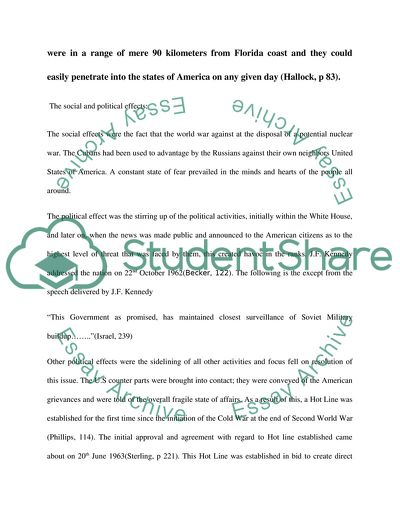Cite this document
(Cuban Missile Crisis Term Paper Example | Topics and Well Written Essays - 2750 words, n.d.)
Cuban Missile Crisis Term Paper Example | Topics and Well Written Essays - 2750 words. https://studentshare.org/history/1819614-cuban-missile-crisis
Cuban Missile Crisis Term Paper Example | Topics and Well Written Essays - 2750 words. https://studentshare.org/history/1819614-cuban-missile-crisis
(Cuban Missile Crisis Term Paper Example | Topics and Well Written Essays - 2750 Words)
Cuban Missile Crisis Term Paper Example | Topics and Well Written Essays - 2750 Words. https://studentshare.org/history/1819614-cuban-missile-crisis.
Cuban Missile Crisis Term Paper Example | Topics and Well Written Essays - 2750 Words. https://studentshare.org/history/1819614-cuban-missile-crisis.
“Cuban Missile Crisis Term Paper Example | Topics and Well Written Essays - 2750 Words”. https://studentshare.org/history/1819614-cuban-missile-crisis.


